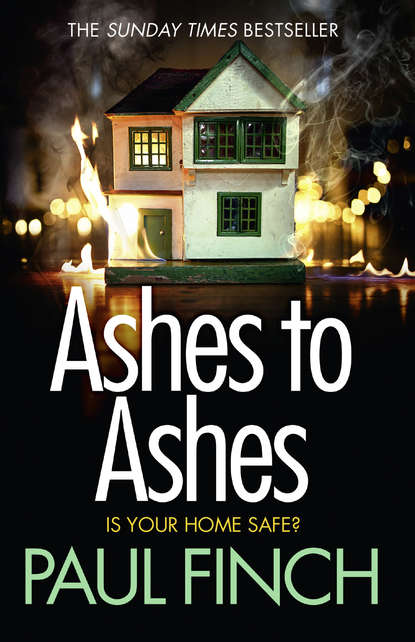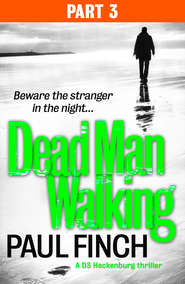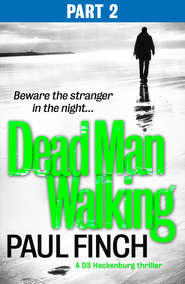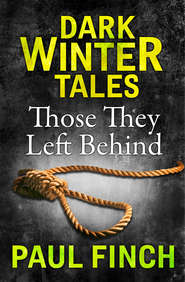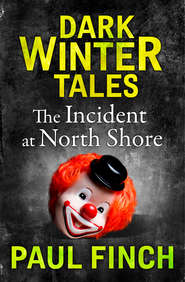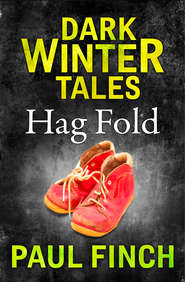По всем вопросам обращайтесь на: info@litportal.ru
(©) 2003-2025.
✖
Ashes to Ashes: An unputdownable thriller from the Sunday Times bestseller
Автор
Год написания книги
2019
Настройки чтения
Размер шрифта
Высота строк
Поля
This latest intelligence finally confirmed that the Bradburn feud was being waged between Vic Ship’s Manchester-based firm and a breakaway crew who had once run Bradburn on Ship’s behalf but now were looking to go independent. There was no evidence as yet, at least nothing firm, that John Sagan had hooked up with Ship, but if there was a retaliatory strike for the fire-attack on Daniel Hollister, which the taskforce was now nervously anticipating, and it involved torture and the use of chloroform to overpower the subject, it would be as good as a signature.
In the meantime, purely in terms of numbers and expertise, the contrasts between the two factions could not be more extreme.
As Heck had already seen, Ship headed a traditional inner-city crime family whose main areas of influence were tough districts like Whalley Range, Fallowfield, Rusholme and Longsight. According to the intel, Ship’s crew dabbled in all the usual activities – pimping, loansharking, protection, drugs – and had a much-feared reputation. They could and would use serious violence if they deemed it necessary, and in the long term, even before this latest shooting war, were suspected of involvement in the murders of at least four rival gangsters. That said, on the whole it was believed that Ship’s mob observed the old-fashioned laws of gangland etiquette in that mainly they messed with their own kind while the general public didn’t even know they existed. This didn’t make them Robin Hood and his Merry Men – they were high-level criminals, whose numbers and activities were on the rise thanks to a new infusion of Russian boeviks, which literally translated into English as ‘warriors’. It seemed that Vic Ship, in his capacity as self-appointed Manchester godfather, had recently made contact with the Tatarstan Brigade in St Petersburg, a deadly cartel who had apparently been looking for an alliance in Britain to open new markets for their narcotics. If nothing else, the expectation of this hook-up was that Ship’s crew would start to display a greater degree of viciousness. The Russian mob weren’t slow to stomp on their opponents, and that would include policemen, judges, politicians, ordinary citizens, anyone. More to the point, with these Russian torpedoes in harness, alongside a merciless enforcer like Sagan, Ship’s outfit ought to be more than a match for anyone if it came to a genuine gangster war.
As a result, Lee Shaughnessy – alleged head of the breakaway group in Bradburn, and Ship’s main rival in the town – could not have looked more out of his depth.
In contrast to Ship’s brutish mugshot, Shaughnessy’s official photo depicted a much younger guy, thirty at the most and remarkably unblemished by his chosen lifestyle. There wasn’t a shaving nick to be seen, let alone a full-blown scar. In fact, with his neatly combed white-blond hair, grey eyes and refined, almost pleasant features, he was a boy next door, the guy you’d be totally happy with if your daughter brought him home. And yet his criminal record was ghastly. He was a Bradburn local, but he’d been in trouble all his life, with multiple convictions for burglary, robbery, car theft and assault. At the tender age of twelve, he’d raped and beaten the female warden in charge of the secure care-home where he was installed. All the credentials you needed, Heck supposed, to eventually work for someone like Vic Ship, though Shaughnessy had only come to the gang boss’s notice in his mid-twenties while serving four years for attacking a police observation post opposite his house at a time when he was suspected of planning a post office raid – two undercover officers were battered unconscious and fifty grand’s worth of surveillance kit was smashed up.
But it was under Ship’s tutelage that Shaughnessy had really blossomed. Acting as the Manchester mob’s chief lieutenant in Bradburn, his brief had been to take charge of the local drugs trade, and lean on the pub and club owners for protection money – all of which he’d pulled off with aplomb. So much aplomb that he’d soon flooded the town’s estates with heroin and crack, while there was scarcely a nightspot where he didn’t have at least some interest. The readies had rolled in, but, perhaps inevitably, Shaughnessy had soon got tired of taking only a small cut when he could (and, in his mind, should) have been taking everything. So he’d recently broken away, taking many of Ship’s Bradburn business interests with him.
GMP were fairly sure the recent war had commenced with the murders, on Shaughnessy’s orders, of the sex-shop managers and Ship loyalists Les Harris and Barrie Briggs, though there was some surprise that Shaughnessy had laid so open and violent a challenge at the door of the larger syndicate, especially as burning two men alive was an extreme punishment even by gangland standards – unless there’d been some provocation by Ship first which had not yet come to the police’s attention. One theory was that this use of fire was intended to be exemplary – in other words a message for any other Ship soldiers still remaining in Bradburn. GMP intelligence officers also felt that such savagery would not be completely atypical of Shaughnessy’s outfit, who were said to be wilder than the norm. Shaughnessy had achieved this by bringing together the worst of the worst in Bradburn’s previously disorganised criminal underworld, recruiting only the most dangerous and unstable individuals: alienated, disenfranchised young punks who were more than willing to rip the world a new one to get what they believed they were owed, and now, under his guidance, would have the knowhow and the means.
As a footnote, Shaughnessy’s mob were also well armed. Ship’s crew produced firearms when it suited them, but only in certain circumstances. By contrast, Shaughnessy’s crew carried guns as a mark of their manhood, a status symbol by which they would demand respect.
Heck shook his head as he perused this material.
Bradburn, his home and a former colliery and mill-town – turned into Dodge City.
It meant more drugs, more vice, more corruption, more opportunities for underachievers to break out of the poverty trap by embracing violence. On top of that, Shaughnessy’s crew in particular were leaning towards public displays of aggression. In their eyes, profit and discretion didn’t necessarily go together. To them, it was as much about status and bling and swaggering down streets that lived in terror of them. And looking further down the page, it became apparent where this attitude, and the guns, had come from. Because Shaughnessy’s number two was another Vic Ship defector, a certain Marvin Langton. Heck had heard that name even in London.
Before joining Ship, Langton, a one-time pro boxer, had been a member of the so-called Wild Bunch, a mixed-race Moss Side posse. They’d almost exclusively been drugs traffickers, but they’d believed strongly in firepower and turf wars, and had become notorious in Manchester’s poorest quarter for such American-style innovations as drive-by shootings, kerb-crunching – where the unlucky victim’s open mouth was slammed down on the edge of a kerbstone – and gang initiation rites involving the random murders of everyday citizens.
Shaughnessy and his crew hadn’t quite resorted to that just yet, but with Langton on the team how far off could it actually be?
The Wild Bunch had finally been taken down by GMP’s Serious Crimes Division, but somehow Langton, who even now was suspected of having been a senior killer in their ranks, had slipped through the prosecution net. He’d signed on for a brief time with Vic Ship, but then he too had got greedy and had relocated to Bradburn to serve as Lee Shaughnessy’s deputy. How long he’d be happy in that secondary role was anyone’s guess, but for the moment at least he made a set of very nasty opponents even nastier still.
Heck was already wondering if Langton could be the lunatic behind the flamethrower. His mugshot depicted a tough-looking black dude in his early thirties. He was broad as an ox across the shoulders, and now in his post-sportsman days was inclined towards heaviness, though there was still something solid and virile about him. He had broad, even features, but wore his hair in a mop of dreads and his eyes burned with an odd metallic-grey lustre. His sneering half-smile revealed a single golden tooth.
As he folded it all away and finished his coffee, Heck was thoughtful.
Shaughnessy’s lot were rough customers and no mistake. A real bunch of cowboys, but they’d still be meat and drink for Vic Ship’s Russian assassins, not to mention John Sagan – as that pair of eviscerated losers in the landfill had discovered.
It was an unusual thing, he reflected, that all these animals were preying on each other and the only thing the cops actually needed to do was sit there and watch as they gradually and bloodily depopulated their own hate-filled world – but instead, SCU was going to intervene.
Damn right it was going to intervene.
Paperwork tucked under his arm, he walked back out towards the car park.
It would always intervene.
If it failed to do that innocent bystanders would get hurt, as they invariably did. And not all the bastards would perish anyway; some, most likely the very worst of them, would survive, stronger, meaner, wealthier, more deeply and widely feared than ever before.
No, the rule of law could never give way to the rule of chaos.
But more important than any of that, John Sagan was not going to die in some crazy midnight crossfire, or in a cloud of flame, or at the hands of Lee Shaughnessy or his brute-of-the-moment, Marvin Langton.
John Sagan was Heck’s.
Chapter 10 (#ulink_155af003-29cc-5280-add6-ec08ff188ddb)
As Heck pulled off the M6 onto the slip-road just after seven that evening, it was raining. It had been dry, mild and spring-like when he’d left London early afternoon, but he’d often suspected that the Northwest had a micro-climate all of its own. As he followed the main dual carriageway into Bradburn, passing the outlying estates, he saw leaves sprouting on hedges, gardens slowly turning green again. But what initially was drizzle had now become a downpour, the sky overhead as grey as lead, and none of that would help improve the atmosphere of a dump like his hometown. Though as Heck drove on, he couldn’t help wondering if he was being a little hard on the old place; it was somewhere he’d enjoyed a happy and uncomplicated childhood after all. Even the early years of his adolescence had been fun – until the thing that had destroyed his family.
It struck him now that maybe this latter event, which had occurred when he was fifteen, had soured the place for him more than it actually deserved. Bradburn had never really recovered from the wholesale closing of its coalmines and mills during the 1960s and 1970s. These days, it was a tale of drab red-brick streets and multiple tower blocks, and here and there the relics of factories, most of them with boarded windows and chimneys that hadn’t smoked in decades. But it was no more run-down than many other urban boroughs that once had depended on heavy industry and now were struggling to adjust to an age in which all that was history. There were some jobs here, but higher-than-average unemployment was an issue that never seemed to go away.
Heck left the dual carriageway to follow lesser routes through intermittent clusters of shops and houses, most on the shabby side. Every other pub he saw was closed, though of course in the twenty-first century that wasn’t solely a Bradburn problem.
It was now half past seven, and Gemma wasn’t expecting him at the Incident Room until the following morning. He was half tempted to stick his nose in anyway, just to grab himself an update, but as he hadn’t yet found any lodgings, he resolved to sort that out first, and the most obvious port of call was his sister’s house. He wasn’t overly keen on the idea, but Dana would never let him hear the last of it if he arrived in Bradburn and didn’t check in with her at the first opportunity. So once he’d penetrated the labyrinthine outer suburbs, he headed inward for what they’d always known as the Old Town, a large residential district lying east of the town centre.
He cut around this central zone, much of which was pedestrianised, via the Blackhall ward. This had always been the town’s poorest quarter, and by the looks of it things hadn’t improved. Its sordid streets appeared semi-derelict, while the lighting was dismal, the little there was of it leaching into smoky bricks and oily flagstones. Beyond Blackhall, Heck swung a left, following Riverside Way, which skirted along the edge of the River Pennington, passing numerous garages, scrapyards and workshops built into railway arches, and several more blocks of high-rise flats, before turning right onto Wardley Rise, which ascended gently into the residential parish of St Nathaniel’s, or the Old Town, at the centre of which stood the teetering needle spire of St Nathaniel’s Roman Catholic Church, known locally as ‘St Nat’s’.
According to a local newspaper, Heck’s home neighbourhood had once ‘summed up everything the old North was about’. It had a lively community, was strongly Catholic and therefore more orderly and law-abiding than a visitor might expect. It was also famous for housing St Nathaniel’s ARLFC, created by Irish monks back in the candle-lit years of the nineteenth century to give local deprived youth an outlet for their aggression, and now one of the most successful amateur rugby league clubs in the whole of Northwest Counties. As a schoolboy star, Heck had represented its various junior teams with distinction. In every way, St Nat’s had been picture-postcard Bradburn: parallel rows of slate roofs and brick chimneys, mills towering in the background. Grimy but picturesque, and also safe – tribes of kids playing on every street corner, mums and grandmas leaning in doorways, chatting idly. Of course that had been the way it was.
As Heck prowled these benighted neighbourhoods now, he scarcely saw a soul.
That might just be down to the rain and the fact it was midweek. Or alternatively, perhaps this district too had fallen onto hard times. Maybe muggers and street-gangs haunted its shadowy backstreets; or perhaps the escalating underworld violence in general was oppressing everybody.
That said, the Old Town wasn’t exactly dead. Not quite yet. Here and there, streams of warm lamplight filtered through curtained windows, though none at all showed from 23 Cranby Street, the Heckenburg family home.
Heck pulled up in front and switched his engine off. The tiny terraced house’s front curtains were open, but the house itself stood in darkness.
He sat still, pondering.
Not much in Cranby Street had changed, except that there were fewer houses. At least half of them had been demolished at some point in the past, but down at the far end there was still open access through to the canal and the lock-gates, and on the other side the reclaimed spoil-land that had later been turned into the rugby league pitch where a juvenile Heck would score many of his tries. But that was so long ago, and so much had happened since, that it seemed hard to equate this desolate little backwater with the place where he’d spent his early life. And the fact that the house was still in his family made no difference.
Dana – Dana Black, as she’d kept her married name despite having long separated from her waster of a husband – was the sole occupant of number 23, along with Sarah, her sixteen-year-old daughter. Heck hadn’t expected that they wouldn’t be here. It wasn’t quite Easter yet and the kids were still in school, so it had never entered his head that they could be away.
His gaze roved again over the sorry little façade. Like the rest of the street, number 23 only ever seemed to change by getting smaller. It felt incredible that all the Heckenburgs had once dwelled here together: George and Mary, the parents, and their three children, Dana, the eldest, Mark, the youngest, and in the middle … Tom.
It was a deep irony that the head of the Heckenburg clan, George, and Heck’s older brother, Tom, had looked so like each other. Tom had been tall and lean, whereas George had been burly, but there were clear similarities: prominent noses, high, hard cheekbones. Of course, whereas George always stuck with the sober grey suits of his own youth, the sensible ties, the short, brilliantined hair, Tom had preferred the disorderly ‘mophead’ look of the late-80s rock scene (dyeing it straw-blond into the bargain), the tour T-shirts and stone-washed jeans with the knees torn out of them. Father and son had been worlds apart in so many ways. In fact, back in that era, Heck, who was younger than Tom by three years, had been the success story, the ‘normal one’ as his mum and dad would say. Mainly this was due to his star-athlete status at school, and because he and his mates were less a group of intellectual rebels, more a bunch of lads around town, which was something factory worker George Heckenburg could more easily understand.
But the real schism between father and eldest son had only come when Tom got into drugs.
Heck shook his head, deciding he was getting nowhere with such painful reminiscence.
Briefly, he rubbed at a crick in the back of his neck, which was stiffening fast, a result of the long motorway journey he’d just completed. He could certainly have used a warm bath right now, not to mention a hot meal, but it didn’t look as if that was going to happen here.
That said, he at least had to check before resorting to Plan B. He climbed out into the wet and knocked on Dana’s door. There was no response.
He retreated to the car and assessed the building again. The absence of light was very telling, not to mention the absence of drawn curtains or of a television left playing to itself – the kind of precautions an everyday householder would take if they’d just popped around the corner to the chippie. He glanced along the street. A few cars were parked, and there were lights in other windows. But it was improbable there’d be anyone living here now who’d recognise him. If anything, an unknown bloke of his age, wearing jeans, trainers, a zip-up jacket and hoodie, wandering around in the dark and knocking on doors would elicit fear rather than neighbourly assistance.
He climbed back into his Megane, glancing one last time at the house he’d used to call home.
*
With a crunch of brakes, Heck stopped on the car park to St Nathaniel’s. Another place he’d once called home, albeit very briefly. Though it didn’t feel that way now.
The towering religious edifice had been the focal point of this district since the Old Town was first built to house Irish immigrants shipped in as part of the Industrial Revolution. All Heck’s life this had been the beating heart of Bradburn, though again he couldn’t help but wonder how vigorously it beat in the twenty-first century. He hadn’t encountered too many people in the past few years for whom spiritual succour was a high priority. He wasn’t here himself for that reason. He had a more practical purpose in mind – to get directions to a decent billet, and maybe at the same time say hello to his late mother’s younger brother, Father Pat McPhearson, who also happened to be parish priest at St Nat’s.





